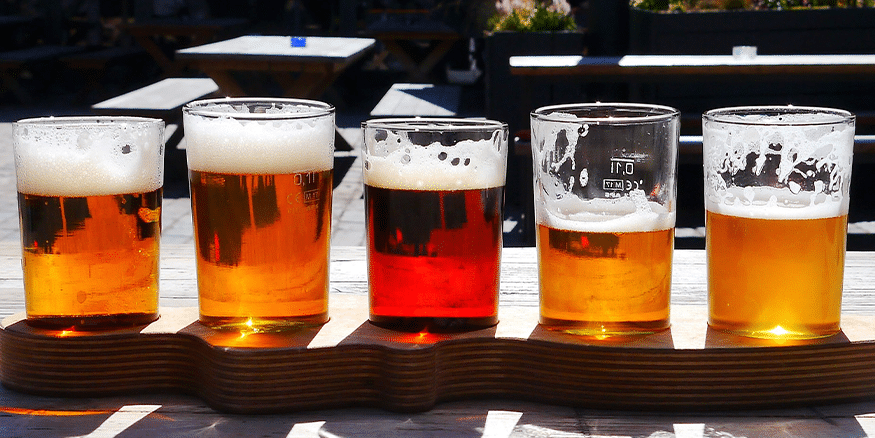
Acute Pancreatitis and Alcohol
What and How You Drink Can Affect Your Risk
The pancreas is a flat gland (that secretes hormones to regulate blood sugar levels) and digestive organ (that produces digestive enzymes) located behind the stomach. Pancreatitis is inflammation of the pancreas. There are two forms of this disease – acute and chronic.
Acute pancreatitis involves an abrupt onset of symptoms that can vary in severity from mild to life-threatening. Symptoms often include nausea, accompanied by pain in the upper abdomen or back. Severe cases may lead to major complications, such as infection, hemorrhage, failure of other organ systems, such as the lungs or kidneys, or fluid collection in the abdomen.
Gallstones are the most common cause of acute pancreatitis, followed closely by alcohol use, and then by several less common causes. Unlike pancreatitis caused by gallstones, pancreatitis caused by alcohol use is the most dangerous, as it can lead to chronic pancreatitis.
Numerous studies have shown a correlation between alcohol consumption and risk of acute pancreatitis, but researchers have wondered why only 1-3% of heavy alcohol drinkers (defined as consuming 4-5 drinks of alcohol per day) will develop acute pancreatitis over a span of 10-20 years. Previous research has shown an association between sales of spirits and incidence of acute pancreatitis. In Sweden, for example, there was a decline in the incidence of acute pancreatitis during the 1970s and 1980s, when sales of hard liquor had declined and sales of wine and beer had increased.
In contrast, chronic pancreatitis is a smouldering, long-standing disease that continues even after resolution of the original trigger. It’s characterized by scarring and irreversible destruction of pancreatic tissue. Alcohol abuse is the typical cause of chronic pancreatitis.
New Research
The first large study to look at the amount and type of alcohol consumed during one sitting and over certain durations, recently published in the British Journal of Surgery,1 has come up with some interesting results that are important for anyone who drinks alcohol, whether regularly or infrequently. Results showed that drinking large amounts of hard liquor at one sitting significantly increases a person’s risk for developing acute pancreatitis.
The researchers followed 84,601 individuals who were aged 46-84 for about a decade, and 513 of them developed acute pancreatitis. The participants were representative of the Swedish population and the majority of them usually consumed no more than 1-2 alcoholic beverages per day. They all filled out questionnaires on their alcohol consumption, diet, smoking, and other lifestyle factors, and provided their medical history. The researchers linked that information to hospital admissions records for acute pancreatitis from the Swedish Patient Register.
The study showed that for every increment of five drinks of hard liquor (one drink is 40mL) consumed in one sitting, the risk of developing acute pancreatitis increased by 52%. However, there was no such increased risk associated with beer or wine consumed in one sitting. Individuals who drank any amount of beer or wine over a short or long period were no more likely to develop acute pancreatitis than individuals who didn’t drink. The researchers also found that the overall amount of hard liquor consumed over the course of a month had no effect on the development of pancreatitis.
Antioxidant Effect
The study’s authors believe these results could reflect the antioxidant capacity of wine and beer. One of the ways alcohol damages the pancreas is by inducing oxidative stress. Unlike spirits, wine and beer both contain polyphenols, which are antioxidants that neutralize harmful oxidation.
Moderation is always a good idea. It is clear from this study that you should especially avoid drinking large quantities of hard liquor at one time, as it is harmful to your pancreas and could lead to pancreatitis or other problems. If you are concerned about your health and alcohol consumption, please discuss this with your physician.

